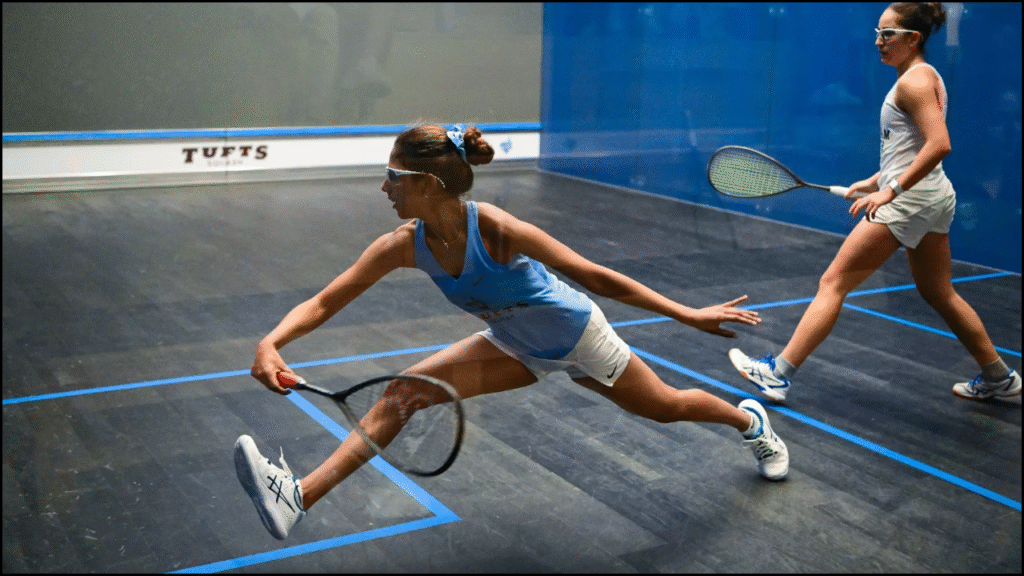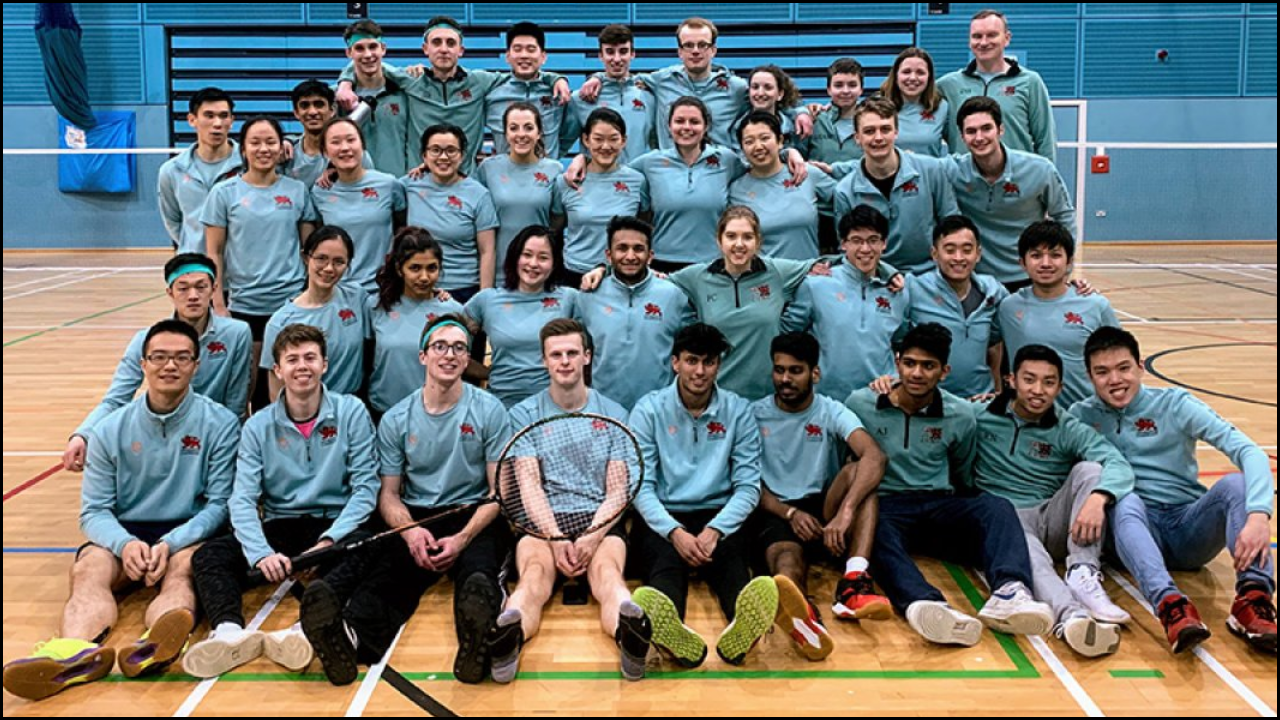
Inter-college squash leagues create a unique platform where education, sportsmanship, and personal growth intersect. Student life gains a strong sense of discipline, teamwork, and leadership through the rigorous environment of competitive squash. The leagues serve not only as arenas for athletic excellence but also as opportunities for networking, academic balance, and personal well-being. A focus on inter-college squash highlights how structured competitions enrich the overall student experience, bridging academic responsibilities with physical and social development.
Table of Contents
Key Benefits of Inter-College Squash Leagues
- Skill Development
- Students refine their technical squash abilities such as footwork, shot selection, and stamina.
- Tactical understanding of the game grows stronger through continuous exposure to diverse opponents.
- Time Management
- Balancing practice sessions with academic deadlines instills discipline.
- Players develop scheduling skills that prove beneficial beyond university years.
- Mental Strength
- High-pressure matches cultivate resilience.
- Students learn to cope with victory and defeat constructively.
- Networking Opportunities
- Connections with players from other colleges expand social and professional circles.
- Alumni often support current players with career advice and mentorship.
Academic and Athletic Balance
- Study-Sport Harmony
- Players manage dual responsibilities of coursework and sports, leading to better multitasking skills.
- Academic institutions often provide flexibility for athletes to catch up on lectures or assignments.
- Institutional Support
- Colleges encourage athletes with scholarships, extra tutorial sessions, and leave for tournaments.
- Faculty collaboration ensures students are not disadvantaged academically.
- Enhanced Concentration
- Regular squash training sharpens focus, which translates into improved study habits.
Leadership and Teamwork
- Captaincy Roles
- Students holding leadership positions develop organizational skills, decision-making abilities, and motivational strategies.
- Team Unity
- Success depends on collaboration, trust, and shared responsibilities.
- Traveling together for matches creates stronger bonds and friendships.
- Conflict Management
- Students learn to resolve disagreements constructively in a competitive yet supportive environment.
Health and Well-Being
- Physical Benefits
- Squash improves cardiovascular endurance, agility, and muscular strength.
- Regular exercise reduces the risk of stress-related health problems.
- Mental Wellness
- Matches and practice sessions provide stress relief from academic pressure.
- A sense of accomplishment boosts confidence and reduces anxiety.
- Healthy Lifestyle Habits
- Students adopt fitness routines, balanced diets, and sleep discipline to maintain performance.
Career Opportunities through Squash
- Scholarships and Recognition
- Outstanding players secure scholarships or reduced tuition fees.
- Awards and honors add weight to resumes.
- Sports Careers
- Coaching, refereeing, and professional squash careers become viable pathways.
- Transferable Skills
- Employers value time management, discipline, and leadership qualities gained through sports.
Impact of Inter-College Squash Leagues on Students
| Aspect | Benefits for Students |
|---|---|
| Academic Growth | Improved focus, better time management, enhanced multitasking skills |
| Athletic Development | Technical mastery, increased stamina, tactical gameplay improvement |
| Social Networking | Friendships across colleges, alumni mentorship, and professional contacts |
| Health Outcomes | Stronger immunity, reduced stress, healthier lifestyle |
| Career Building | Scholarships, sports-related jobs, and an enhanced CV through leadership roles |
Cultural and Social Dimensions
- Diversity and Inclusion
- Leagues bring together students from different cultural and social backgrounds.
- Participation promotes inclusivity and respect.
- College Pride
- Representing a college builds unity and identity.
- Victories bring recognition to institutions and create memorable traditions.
- Student Engagement
- Events attract large student audiences, boosting campus vibrancy.
- Non-players also participate in organizing, volunteering, and supporting teams.
Challenges and Solutions
- Financial Barriers
- Equipment costs and travel expenses can limit participation.
- Solutions include sponsorships, college funding, and shared resources.
- Academic Pressure
- Balancing exams with tournaments often creates stress.
- Time management workshops and supportive faculty help address this issue.
- Injury Risks
- Players face strain injuries if training is unbalanced.
- Colleges provide physiotherapy and fitness programs to minimize risks.
Common Challenges in Inter-College Squash Leagues
| Challenge | Impact on Students | Possible Solutions |
|---|---|---|
| High Expenses | Limited participation due to the costs of equipment and travel | Sponsorships, pooled funding, and equipment subsidies |
| Exam-Tournament Clash | Stress and missed classes during tournaments | Academic flexibility, rescheduling, and online notes |
| Injuries | Interrupted participation and lower performance | Regular medical checkups, physiotherapy, and fitness plans |
| Limited Facilities | Unequal training opportunities across colleges | Shared practice centers, inter-college collaborations |
Role of Technology in Modern Squash Leagues
- Video Analysis
- Students analyze their matches to improve technique.
- Coaches provide targeted feedback using technology.
- Fitness Tracking
- Wearable devices monitor stamina, heart rate, and performance.
- Data-driven training improves outcomes.
- Online Platforms
- Scheduling apps and communication channels streamline coordination.
- Live streaming of matches increases engagement among students and alumni.
Long-Term Influence on Student Life
- Professional Readiness
- Skills developed during college leagues carry forward into careers.
- Alumni Contribution
- Former players return as mentors, coaches, or sponsors, creating a cycle of support.
- Personal Growth
- Confidence, resilience, and discipline gained during competitions shape students into well-rounded individuals.
Long-Term Benefits of Inter-College Squash Participation
| Category | Benefits Experienced After College |
|---|---|
| Career Growth | Stronger resumes, networking, transferable leadership skills |
| Health Maintenance | Lifelong fitness habits, reduced health risks |
| Social Value | Expanded circles of friends and professional contacts |
| Community Role | Alumni contributions, mentorship opportunities, institutional pride |
Key Takeaways
Inter-college squash leagues stand as more than mere competitions; they represent vital contributors to holistic student development. A balance of academics, health, leadership, and networking emerges naturally from active participation. Students carry forward not just improved squash skills but also life lessons of resilience, teamwork, and confidence. A thriving squash culture within colleges ensures that sports remain central to education, shaping young individuals into capable professionals and responsible citizens.





